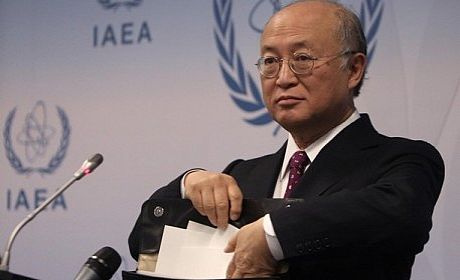Parchin, IAEA’s Achilles’ Heel

Amano’s recent report has been presented to the UN General Assembly. Has there been any special reason for taking such a measure?
Amano has been duty-bound to deliver a copy of his report to the Security Council every year when deemed necessary. In other words, from the past, he was supposed to inform the Security Council of progress made in negotiations. Of course, if there is nothing new in the report, there is no need to send it to the Security Council, but perhaps new issues have come up which may be positive or negative points for Iran.
What new points have been proposed in this report?
In the November report, Amano has claimed to have credible information about strong explosive tests at the Parchin site, and on the other hand, has added that the IAEA attempts to certify the peacefulness of Iran’s nuclear program. He has also pointed out that Tehran still refuses to cooperate with the IAEA to assure and prove the non-existence of secret nuclear activities to this organization. Another point which Amano has stated about Parchin’s nuclear activities is that the IAEA confirms that Iran’s declared nuclear material has not been transformed for military usage, but since Iran does not cooperate, this agency cannot uphold that there have not been undeclared atomic activities or atomic materials. What has been new in this report is the issue of having detonators and blasting caps. Therefore, it seems that the IAEA still insists on visiting Parchin to verify the peacefulness of Iran’s nuclear activities.
Has this issue which Amano has referred to, based on having accurate information on strong explosions in Parchin, been mentioned in previous reports?
The issue of explosions can be either nuclear or military. Therefore, it does not mean anything by itself, unless they can prove that these explosions were nuclear. Of course, these reports were gathered from different sources, either from IAEA members or spying agencies. But until the inspectors do not visit the Parchin site up close, they cannot prove such a point. It should be mentioned that in previous reports, there were only talks of nuclear activities in Parchin, but in this report, the issue of heavy explosions was pointed out.
What should Iran’s reaction be in your opinion?
I believe that they will make conditions for Iran more difficult day by day, and it seems that Iran will be forced one day to succumb to their demands. We hope that on that day we will not totally surrender. It is possible that the decision-makers have negotiated behind the scenes and intend to either stop enrichment or continue the previous trend.
What Iran has declared about the Parchin site is that Parchin is a military site and no institution has permission to visit a military site of another country. To what extent can Iran prove this claim or, on the other hand, can the IAEA prove that there are nuclear activities on this site?
Yes, Iran’s claim is correct. The inspectors are only permitted to inspect the sites which Iran presents as economic sites, and military sites are secret locations for any country. With regard to Parchin, Iran has never explicitly stated that it would not give permission for the inspectors’ visit; it has rather proposed the question of whether this visit will be the last visit or whether such visits will be repeated. Iran’s question is whether this visit is the beginning or the end for Iran’s nuclear dossier, because the Islamic Republic of Iran cannot leave these visits open and the issue of which areas are going to be inspected must be clarified.
Is there a possibility that a new resolution would be issued after presentation of this report?
Until the result of the US presidential election is known, Iran’s nuclear issue is not a priority. It means that other issues such as Syria, the US election, Iran, and even political issues of countries are important and have overshadowed the nuclear issue.
What is significant is that they do not have accurate evidence of Iran’s nuclear activities on which basis resolutions could be issued. But, considering the fact that Israel has set aside its threats, the political atmosphere with regard to Iran’s nuclear issue is calm.
Can the claim that the Parchin site is being cleansed be proven?
If an explosion is nuclear, it cannot be cleansed. That means there are sensitive tools with which nuclear explosions can be detected. Therefore, the statement that the impacts of these explosions have been erased is completely false. The reason is that erasing the effects of an explosion is not an easy task. Radioactive materials sit on the leaves of the trees, buildings, and cars and, thus, the effects of these materials can easily be traced. In other words, if a nuclear explosion occurs in one part of the world, its impacts could reach other parts as well and can be measured. Nuclear explosions which have happened in the past can still be traced. Therefore, the claim of erasing and cleansing Parchin cannot be proven.

